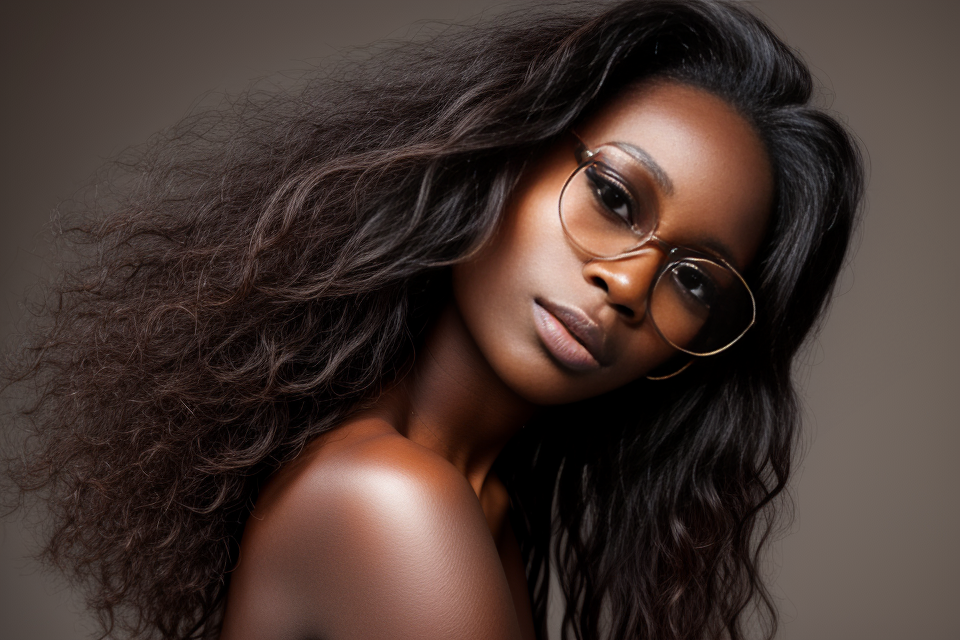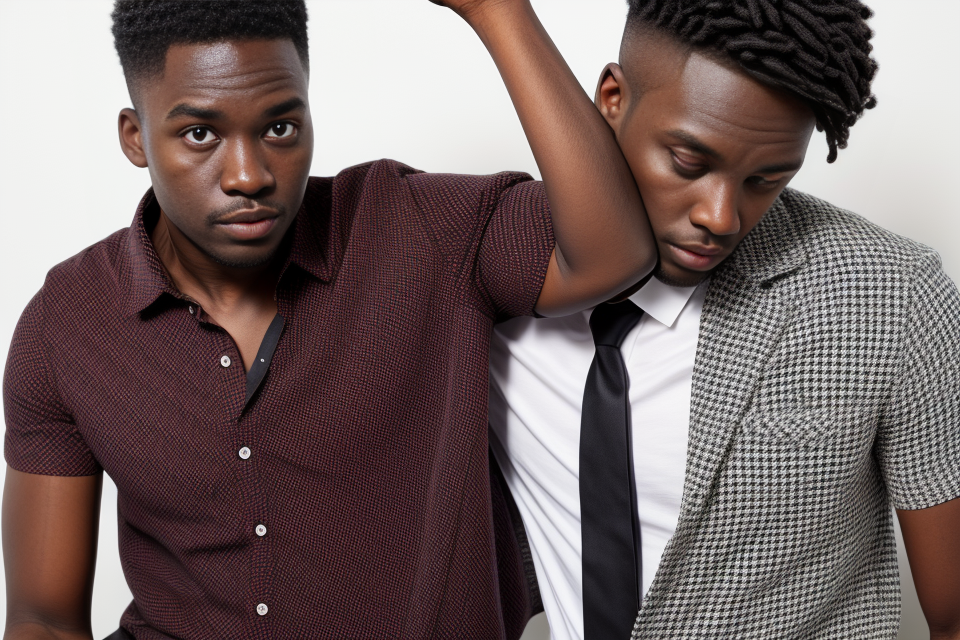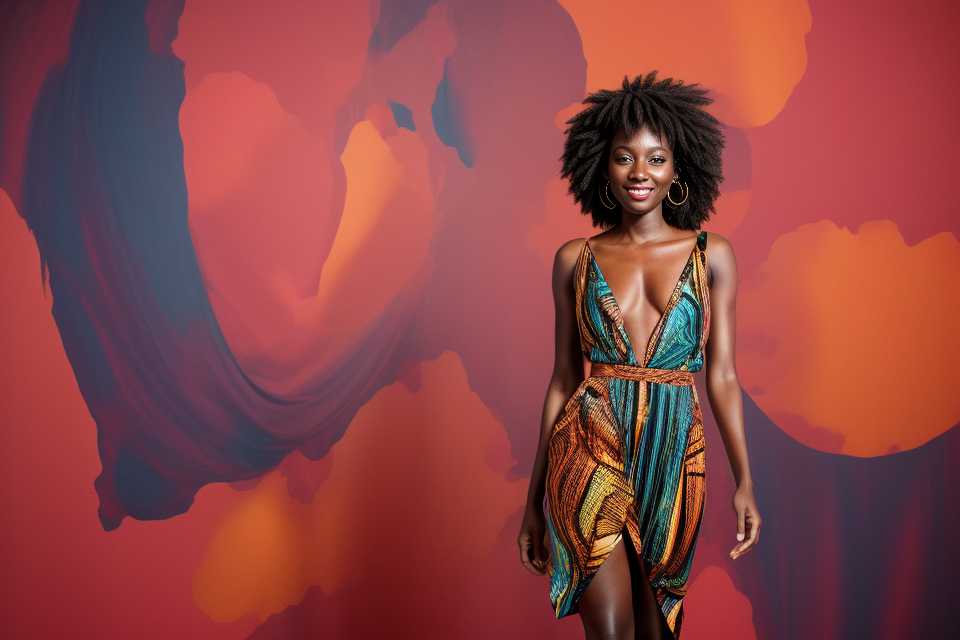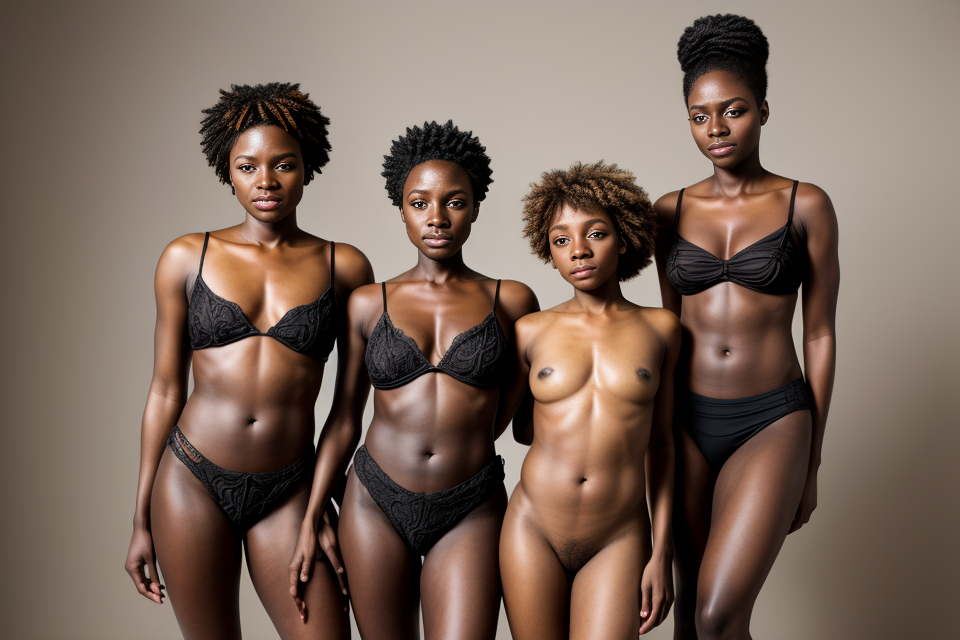Unlock the secret to achieving the perfect hair color match for your dark skin tone! Discover the most flattering shades that will enhance your natural beauty and leave you looking and feeling confident. From rich, deep tones to lighter highlights, find out which colors will bring out the best in your complexion. Get ready to transform your look and learn what color hair is best for dark skin.
There is no one-size-fits-all answer to what color hair is best for dark skin, as hair color is a personal choice and can depend on individual preferences and the desired look. However, some people with dark skin may choose to opt for hair colors that complement their natural complexion, such as dark brown, black, or rich chocolate shades. Ultimately, the best hair color for someone with dark skin is the one that makes them feel confident and attractive.
Understanding Dark Skin Tones
Characteristics of dark skin tones
Dark skin tones are characterized by their deep, rich coloration. They are typically described as having a brown or black hue, with a high concentration of melanin. The melanin content in dark skin tones provides natural protection against the sun’s harmful UV rays, making it less susceptible to sun damage.
One of the defining characteristics of dark skin tones is their undertones. Undertones refer to the subtle variations in color that can be seen beneath the surface of the skin. These variations can range from warm, golden undertones to cool, blue undertones. Understanding the undertone of a person’s skin can help to determine the best hair color for them.
Examples of dark skin tones include:
- African skin tones: These are characterized by a deep brown or black color, with warm undertones.
- Indian skin tones: These can range from fair to dark, with warm or cool undertones.
- Mediterranean skin tones: These are characterized by a warm, golden undertone.
It is important to note that the color of a person’s hair should complement, not overpower, their natural skin tone. A hair color that is too light or too dark can wash out the natural beauty of the skin, while a hair color that is too vibrant can clash with the complexion. Finding the right balance is key to achieving a stunning, cohesive look.
Importance of choosing the right hair color
Choosing the right hair color is crucial for individuals with dark skin tones as it can greatly impact their overall appearance and confidence. Here are some reasons why it is important to choose the right hair color:
- Enhancing facial features: Hair color can help to define and enhance facial features, making them appear more striking and balanced. For example, a deep brown hair color can complement dark eyes and a strong jawline, while a lighter shade can accentuate a softer, more delicate facial structure.
- Complementing natural hair texture: Choosing a hair color that complements one’s natural hair texture can make it appear healthier and more vibrant. For example, a rich, warm shade like auburn can complement naturally curly hair, while a lighter shade like blonde can enhance naturally straight hair.
- Confidence boost: Feeling confident in one’s appearance can have a significant impact on overall well-being. Choosing a hair color that makes one feel confident and attractive can have a positive impact on self-esteem and overall mood.
It is important to keep in mind that different shades of hair color can work well on different skin tones, so it is important to experiment and find the shade that best flatters one’s complexion.
Popular Hair Colors for Dark Skin Tones
Black hair
- Natural look: Black hair is a natural choice for individuals with dark skin tones, as it can enhance and complement the natural beauty of the skin. It can also provide a classic and timeless look that is easy to maintain.
- Versatility: Black hair is versatile and can be styled in a variety of ways, from sleek and straight to curly and wavy. It can also be easily dyed or highlighted to create a more dramatic look.
- Easiest to maintain: Black hair is generally considered to be the easiest to maintain, as it does not require much effort to keep it looking healthy and shiny. It is also less prone to damage, which means it can be styled using heat tools without fear of causing harm. Additionally, black hair can be easily hidden with a variety of styling products, such as hair spray, gel, or pomade.
Brown hair
Classic and versatile
Brown hair is a classic and versatile choice for those with dark skin tones. It is a natural-looking color that can be easily styled in a variety of ways, making it a popular choice for those looking for a low-maintenance yet stylish look.
Complements various skin tones
Brown hair is a great choice for those with dark skin tones as it complements a wide range of skin tones. Whether you have warm or cool undertones, brown hair can be tailored to suit your individual skin tone, providing a flattering and natural-looking color.
Subtlety in different shades
Brown hair comes in a variety of shades, from light to dark, and can be customized to suit your individual preferences. Lighter shades of brown hair can add warmth and depth to your complexion, while darker shades can create a more dramatic look. There are also various undertones of brown hair, such as golden or copper, that can add dimension and interest to your overall appearance.
In conclusion, brown hair is a popular choice for those with dark skin tones due to its classic and versatile nature, ability to complement various skin tones, and the subtlety in different shades available.
Auburn hair
Auburn hair is a beautiful and flattering hair color that works well with dark skin tones. This hair color has warm undertones, which means it complements the warm undertones of dark skin. Auburn hair is also a great way to highlight facial features, as it creates a stunning contrast against dark skin.
One of the reasons why auburn hair is so flattering on dark skin is that it adds dimension and depth to the hair. Auburn hair is a natural-looking color that is not too light or too dark, making it perfect for those with dark skin. The color is also versatile, as it can be styled in a variety of ways to suit different occasions and personal styles.
Another benefit of auburn hair is that it is a low-maintenance color. Unlike lighter hair colors, auburn hair does not require much maintenance or touch-ups. This means that those with dark skin can enjoy the benefits of a beautiful and flattering hair color without having to spend a lot of time or money on maintenance.
Overall, auburn hair is a great choice for those with dark skin tones who want a flattering and versatile hair color. It is a natural-looking color that complements dark skin and can be styled in a variety of ways. Plus, it is low-maintenance, making it a practical choice for those who want to look their best without spending a lot of time or money on hair care.
Red hair
- Unique and striking
- High contrast with dark skin
- Can be dramatic or subtle
Red hair is a popular choice for those with dark skin tones, as it offers a unique and striking contrast. The bold color can be either dramatic or subtle, depending on the individual’s preference and the occasion.
Red hair can be achieved through hair dye or hair coloring treatments, and there are various shades of red to choose from, including auburn, mahogany, and copper. The vibrant color can be paired with a variety of skin tones, making it a versatile option for those with dark skin.
It is important to note that red hair can be a commitment, as it may require more maintenance than other hair colors. It is recommended to use a high-quality hair dye and to follow the instructions carefully to ensure the best results. Additionally, it is important to consider the desired longevity of the color, as some red hair dyes may fade more quickly than others.
Overall, red hair is a popular choice for those with dark skin tones looking to make a bold statement and stand out. With its high contrast and versatility, it is a great option for those looking to try something new and different with their hair color.
Blonde hair
Blonde hair is a popular choice for those with dark skin tones, as it can create a striking contrast and highlight the natural beauty of the complexion. However, it’s important to note that achieving and maintaining this hair color can be high maintenance.
Here are some key points to consider when it comes to blonde hair and dark skin tones:
- Lightening effect on dark skin: Blonde hair can create a beautiful contrast with dark skin, as the light color can help to brighten and even out the skin tone. This can be especially flattering for those with warm undertones in their skin.
- High maintenance: Maintaining blonde hair can be time-consuming and require regular touch-ups to keep it looking fresh and vibrant. This is because blonde hair is prone to fading quickly, especially if it’s exposed to sunlight or heat styling tools.
- Compliments naturally light-colored eyes: If you have naturally light-colored eyes, such as blue or green, blonde hair can be a great choice as it can create a stunning contrast and make your eyes appear even more striking. However, if you have darker eye colors, such as brown, you may want to consider other hair colors that can complement your natural beauty.
Choosing the Right Hair Color
Considering individual features
When it comes to choosing the right hair color for dark skin, it’s important to consider individual features. Here are some key factors to keep in mind:
Facial shape
The shape of your face can play a big role in determining what hair color will look best on you. For example, if you have a round face, you may want to avoid hair colors that can make your face appear wider, such as dark brown or black. Instead, lighter shades like blonde or silver may be more flattering. If you have a heart-shaped face, you may want to try hair colors that can balance out the width of your face, such as chestnut brown or honey blonde.
Skin undertone
Your skin undertone can also affect the way certain hair colors look on you. If you have warm undertones, you may want to avoid hair colors that can make your skin look more yellow or orange, such as copper or auburn. Instead, you may want to try cooler shades like ash blonde or silver. If you have cool undertones, you may want to try warmer shades like honey blonde or chestnut brown.
Eye and hair color
Finally, your eye and hair color can also affect the way certain hair colors look on you. If you have dark brown or black hair and blue eyes, you may want to try lighter shades like blonde or silver to create contrast. If you have light brown or red hair and green or hazel eyes, you may want to try warmer shades like honey blonde or chestnut brown to create contrast.
By considering these individual features, you can choose a hair color that complements your unique features and enhances your natural beauty.
Experimenting with different shades
Experimenting with different shades is a great way to find the perfect hair color that complements your dark skin tone. Here are some ways to experiment with different shades:
- Temporary hair color: Temporary hair color is a great way to try out a new color without committing to it permanently. You can find temporary hair color in the form of sprays, powders, and rinses. These products usually wash out after one or two shampoos, so you can easily change up your color whenever you want.
- Highlights and lowlights: Highlights and lowlights are a great way to add dimension and depth to your hair color. You can ask your stylist to add a few highlights or lowlights to your hair to add some contrast and depth to your natural color.
- Hair accessories: Hair accessories such as hair clips, headbands, and hair ties can also be a great way to add some color to your hair without actually dyeing it. You can find hair accessories in a variety of colors, so you can choose ones that complement your skin tone and style.
By experimenting with different shades, you can find the perfect hair color that complements your dark skin tone and enhances your natural beauty.
Maintaining Hair Color
Moisture-rich products
Maintaining healthy and vibrant hair color can be a challenge, especially for those with dark skin tones. To keep your hair looking its best, it’s important to use moisture-rich products that will help to protect and nourish your hair.
Shampoo and conditioner
Using a high-quality shampoo and conditioner is the first step in maintaining healthy hair. Look for products that are specifically formulated for your hair type and color. Shampoos and conditioners that are designed for color-treated hair will help to keep your hair looking vibrant and healthy.
Hair masks
Hair masks are a great way to provide extra nourishment and hydration to your hair. Look for masks that are formulated with ingredients like shea butter, argan oil, and coconut oil, which are known for their moisturizing properties. Apply the mask to your hair after shampooing and leave it on for 10-15 minutes before rinsing it out.
Leave-in conditioner
Leave-in conditioner is a must-have for anyone with dry or damaged hair. This product helps to seal the cuticle and prevent breakage, while also adding moisture and shine to your hair. Look for leave-in conditioners that are lightweight and won’t weigh your hair down. Apply a small amount to your hair after towel-drying and style as usual.
Overall, using moisture-rich products is key to maintaining healthy and vibrant hair color, especially for those with dark skin tones. By using high-quality shampoos and conditioners, hair masks, and leave-in conditioners, you can help to protect and nourish your hair, keeping it looking its best.
Regular salon visits
Maintaining a consistent hair color requires regular salon visits to ensure the color stays fresh and vibrant. Professional coloring can help maintain the integrity of the hair and prevent damage from fading or discoloration. During salon visits, it is recommended to get a hair cut and styling to keep the hair looking healthy and well-maintained. A skilled stylist can also provide trend and fashion advice to help clients choose the best hair color for their skin tone and personal style.
Some of the benefits of regular salon visits include:
- Expert color selection: A stylist can help choose the best hair color for a client’s skin tone and personal style, ensuring that the color looks natural and flattering.
- Consistent maintenance: Regular visits can help maintain the color of the hair, preventing it from fading or discoloring over time.
- Hair cut and styling: A haircut and styling can help keep the hair looking healthy and well-maintained, which can complement the hair color.
- Personalized advice: A stylist can provide personalized advice on hair care, styling, and trends, helping clients achieve their desired look.
In summary, regular salon visits are essential for maintaining a consistent and flattering hair color. A skilled stylist can provide expert color selection, consistent maintenance, hair cut and styling, and personalized advice to help clients achieve their desired look.
FAQs
1. What color hair is best for dark skin?
Answer:
For dark skin tones, the best hair color options are generally those that are dark or rich in tone. These include colors like black, dark brown, mahogany, and deep auburn. Lighter hair colors, such as blonde or platinum blonde, can sometimes look washed out or unnatural on dark skin. However, this ultimately depends on personal preference and the specific undertones of an individual’s skin. It’s always a good idea to consult with a stylist or colorist to determine the best hair color for your unique skin tone.
2. Can I dye my hair a lighter color if I have dark skin?
Yes, you can certainly dye your hair a lighter color if you have dark skin. However, it’s important to keep in mind that lighter hair colors can sometimes look unnatural or washed out on dark skin tones. If you do decide to go for a lighter color, it’s a good idea to choose a shade that is slightly warmer or more golden in tone, rather than cooler or gray-based tones. It’s also important to use a good quality hair color product and to follow the instructions carefully to ensure that the color looks natural and healthy.
3. How often should I color my hair if I have dark skin?
The frequency with which you should color your hair depends on a variety of factors, including the type of hair color you use, the condition of your hair, and your personal preferences. In general, it’s a good idea to color your hair every 4-6 weeks to maintain the desired shade and prevent fading. However, if you use a semi-permanent or demi-permanent hair color, you may be able to go longer between touch-ups. It’s always a good idea to consult with a stylist or colorist to determine the best hair color schedule for your unique needs.



